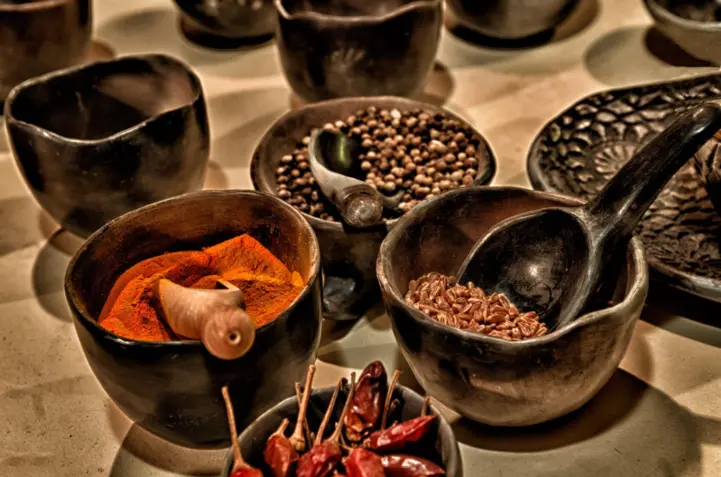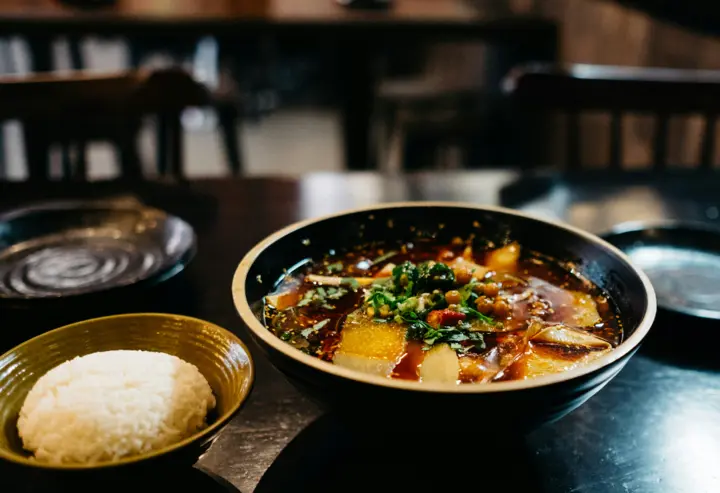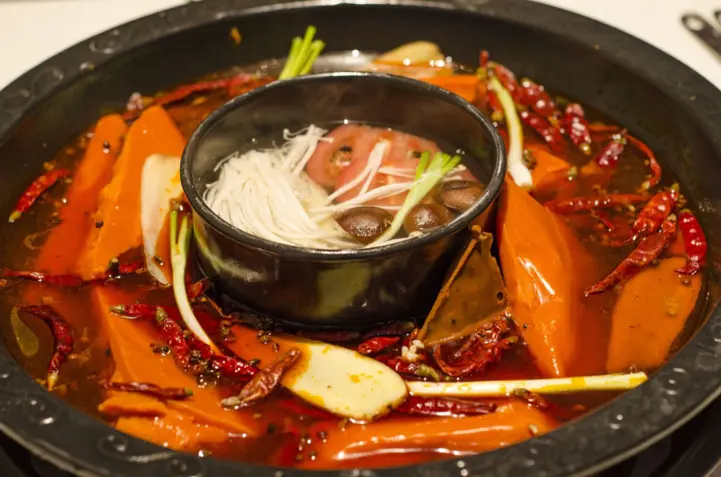The Science Behind Spice Cravings: Why Is Spicy Food Addictive?
From the refreshing flavor of salsa to the spicy chicken shoot, spicy foods have captivated our taste buds and senses for generations. But have you ever wondered why we crave spicy food and love to come back to eat more?
Show key points
- Capsaicin, a natural compound in chili peppers, is responsible for the burning sensation we feel when eating spicy food by interacting with the TRPV1 receptors in our mouth.
- The discomfort caused by spicy food triggers the release of endorphins, which soothe the pain and create a pleasurable sensation.
- Eating spicy food can lead to a dopamine rush, creating feelings of euphoria that encourage people to crave the heat again.
- ADVERTISEMENT
- Consuming capsaicin-rich food may temporarily boost metabolism, helping the body burn more calories.
- Spicy food supports digestion by stimulating saliva production, which initiates the breakdown of food.
- Capsaicin may contribute to better heart health by lowering levels of bad cholesterol and improving circulation.
- While chili peppers aren't physically addictive, the pleasurable response they provoke can lead to a strong psychological craving.
What makes food spicy

At the heart of the fiery sensation is capsaicin, a natural compound found in chili peppers. When capsaicin meets the receptors on our tongue and mouth, it triggers a series of amazing reactions that ignite our sense of heat.
Our taste buds may think it's a fire alarm, but it's like a complex dance between molecules and nerves. Since capsaicin binds to a receptor called TRPV1 (a potential transient receptor vanilloid 1), it triggers a response that our brain interprets as a burning sensation. This sensation is not accidental, but rather an evolutionary property that some plants, such as chili peppers, have perfected to protect themselves from eating.
Recommend
Why do we like spicy food?

This burning sensation caused by capsaicin is not only a useless pain. When our body senses heat, it starts working, releasing a series of endorphins. These endorphins are similar to painkillers found in the body, soothing initial discomfort and replacing it with a feeling of pleasure. It's like a small reward system designed by nature, creating a sense of joy that makes us addicted to this poke and exciting burn.
The release of endorphins not only relieves the instant pain of spices, but also creates a rush of joy and excitement. This neural response reinforces an emotional attachment to spicy food, encouraging us to seek that pleasant experience again and again.
Spicy foods can cause "euphoria"

There's something undeniably delightful about sticking your teeth into fiery chili peppers or eating that bold bite of spicy chicken. It's an excitement often likened to "ecstasy," and it's not just your imagination, it plays a scientific role.
When our body responds to the burning of capsaicin, it releases dopamine, a neurotransmitter associated with pleasure and reward. This increase in dopamine contributes to the pleasant sensations we experience while eating spicy food, reinforcing our desire for that unique heat.
Health Benefits of Eating Spicy Foods

When we think of spicy food, the first thing that often comes to mind is the fiery sensation and strong flavors. However, there is much more to spicy food than meets the eye. Here are some of these interesting benefits of eating spicy:
1. Promote metabolism
Imagine enjoying a spicy dish that not only pleases your taste buds, but also increases your metabolism. Capsaicin, the active compound found in chili peppers, has been shown to temporarily increase metabolic rates, leading to higher calorie burns. So, while you enjoy the heat, your body also gets a boost to metabolism, making spicy food an unexpected ally in controlling your weight.
2. Improve digestion
The journey of enjoying spicy food begins with a burst of flavor, but did you know that it can support digestion as well? When consumed spicy foods, they lead to the production of saliva, which starts digestion. This initial step helps break down food more effectively, making digestion smoother and more efficient. So, think of spicy food not only as a gastronomic experience, but also an easily digestible addition to your meals.
3. Relieve pain naturally
Have you ever felt the comforting warmth spread through your body after eating something spicy? It's not just your imagination, it's the work of endorphins. Capsaicin stimulates the release of natural pain relievers, providing a feeling of comfort. So, when you experience minor discomfort, consider turning to spicy food for a touch of natural solace.
4. Support heart health
The compound itself responsible for the firekick, capsaicin, may have a role in protecting your heart. Research suggests that capsaicin may help reduce bad cholesterol levels, thereby promoting cardiovascular health. By doing so, it contributes to your overall health, making this spicy dish not only a culinary pleasure, but a delicious pathway to heart health.
5. Boost immunity
Some studies suggest that capsaicin can possess immune-boosting properties as well. By boosting blood flow and circulation, it may help transport immune cells, thereby strengthening the body's defense mechanisms. So, your fondness for spices may give your immune system a boost.
The truth about chili: is it addictive?

Capsaicin-filled chili peppers are a staple in the world of spicy foods. But can it really be addictive?
Although it does not lead to physiological addictions like drugs, the pleasant response it evokes can lead to psychological passion.
When we taste the heat, the dopamine we get from the spice kick creates a feeling of satisfaction. While this pleasurable response can lead to a desire for more, it is a psychological longing rather than a real addiction. For this reason, unlike drug addiction, our cravings for spicy food are not harmful and can be enjoyed in moderation.